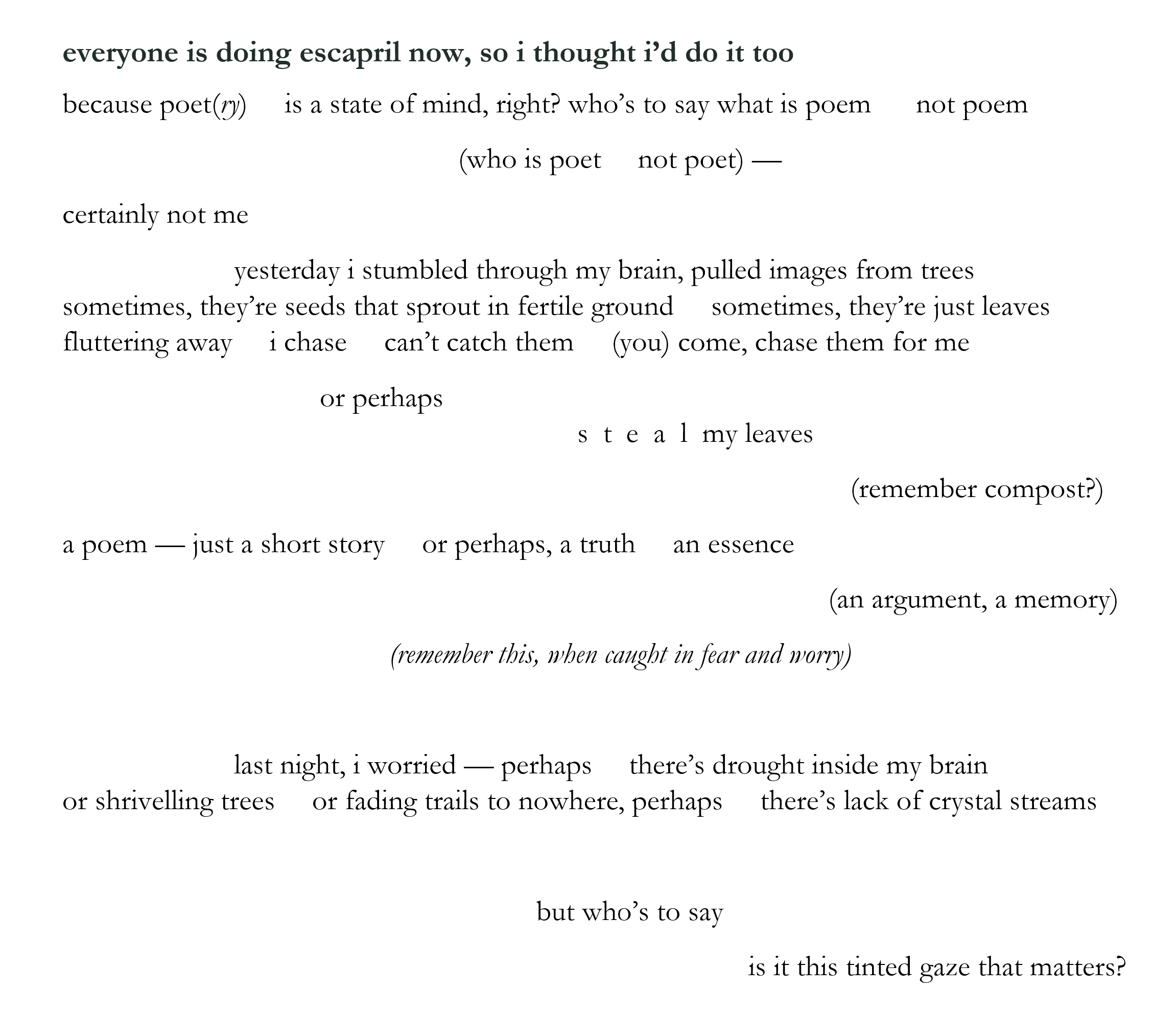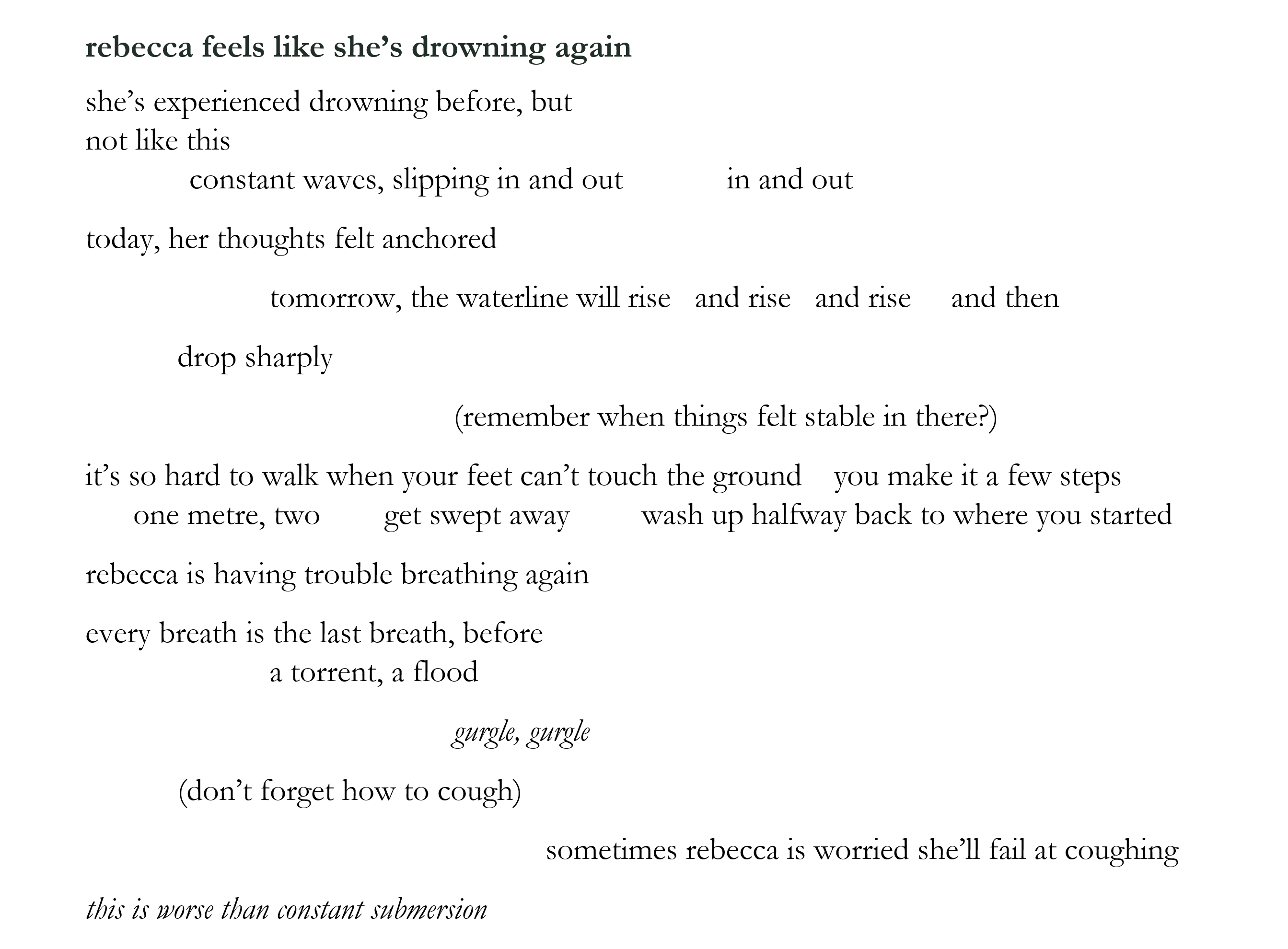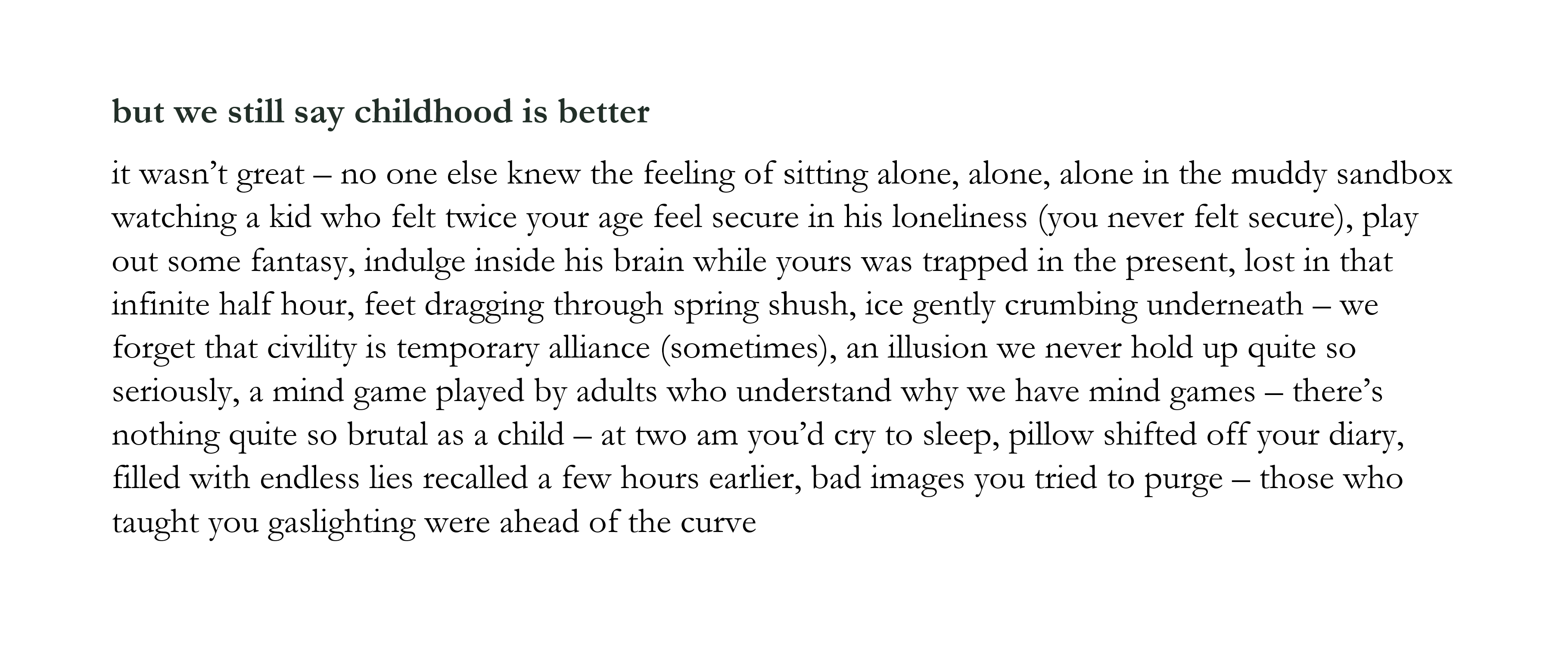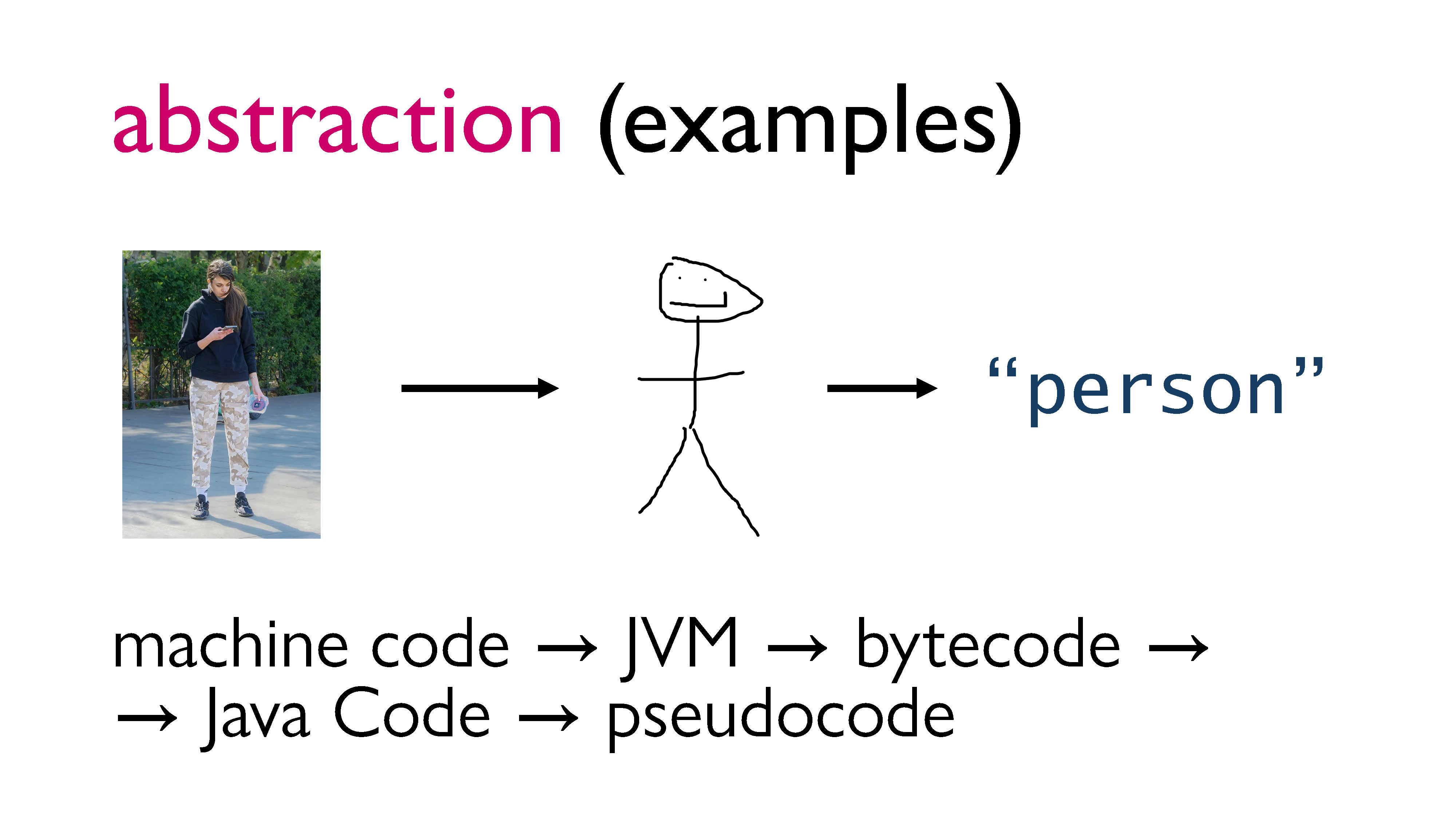My Favourite Things I Wrote Last Year /
My Favourite Things I Wrote in 2024
The year 2024 was a really bizarre year for me, writing wise – while I had work come out in a relatively high-profile venue, and I finally started blogging again, I didn’t produce much in terms of “literary work”, and definitely did not write any creative works that I would consider to be publishable, which kinda sucks. I made some progress on some essays I hope to finish this year, wrote a few poems, and… I think that was it???? I was very academically focused in 2024 though, so it makes sense. I did do lots of academic writing, created some didactic/informational texts, and wrote some more informal stuff on this blog, so maybe in terms of pure wordcount I wrote more than I do most years. So I guess I still wrote, but the form and content of what I was writing shifted.
In this post, I want to go through some of my favourite excerpts I wrote in 2024. Some of them are from finished work, and some are from WIPs, but it doesn’t matter – a strong excerpt is a strong excerpt. I might also say a few words about what it is that I liked from each excerpt.
Blog Posts
The Absolute Horror That Is Dressing for Work; or, How to Navigate Dress Codes
I almost wish I’d let this article sit for a while and edited it, then tried to get it published somewhere – I really think it could have been a published essay (maybe minus the chunk at the end), and it’s by far one of my favourite things I’ve written this year. I think it captures my voice and my sense of humour. And I think I killed it with a lot of the word choice. I was feeling really burned out with academic work while I was writing this, and this was a needed dose of fun in my life.
Here’s my favourite excerpt.
I don’t know which is worse: places that say they have a dress code (that no one really understands), or places that don’t even pretend to have a concrete dress code and leave employees to their own devices. For example, lots of places will claim that their dress code is “business casual”. The problem I have with this is that there is no meaningful notion of what “business casual” actually means, only “what people wear in my office”, which may wildly differ from person to person.
Here’s a likely scenario: you spend days reading “what is business casual attire” articles, which are just as confused as you are but won’t admit it because they’re trying to be authoritative sources. You walk in wearing a blazer over a dress shirt tucked into dark pants, but you end up pairing that with sneakers because that’s what you own. You immediately feel overdressed because no one seems to wear tailored jackets around here. It seems like most of the guys are wearing dress shirts or polos with chinos, there’s that one guy wearing a tracksuit, and there are so few women that it’s impossible to tell what they’re supposed to wear. Meanwhile, your boss is wearing a t-shirt, his boss is wearing a suit, and your mind is twisting into knots trying to figure out whether it’s okay to wear t-shirts here (or whether your boss just gets leeway thanks to seniority) and whether senior management actually dress more formally (or whether the director just comes from an era when wearing suits was a thing people did).
But hey, somehow you actually got the shoes right. That was definitely on purpose. Yup.
That scenario was completely made up, but I swear, I’ve seen versions of it happen.
What Reading a Research Paper Feels Like
I was feeling particularly frustrated about the research process and ended up taking a break to write this dramatized analogy of what reading academic papers can be like. I think it’s great. It’s a pretty short piece, so I won’t include an excerpt. Go read the whole thing.
My Complicated Relationship with the Visual Arts
I have a messy relationship with art. Most of my friends are visual artists, and I’ve definitely paid my dues when it comes to spending time in a sketchbook or drawing or designing things or making them. But I’ve always found the visual arts community to be weirdly gatekeepy about the skill required to call yourself “an artist”, or weirdly obsessed with technical skill and “properly learning” how to do art. I’ve never been a “serious” visual artist, and this post explores my qualms with this sort of culture and how it’s influenced my behaviour and “artistic practice” (if you can even call it that) over the years.
Of all of the artistic disciplines, I think the visual arts place the most emphasis on technical skills. Sure, all disciplines value skill: I’m also a writer and a musician and I’ve spent significant amounts of time working to improve in those areas. But in my experience, most people do not assume they cannot be musicians or writers because they are not technically skilled writers or musicians yet; in fact, most people are totally happy to call themselves musicians or writers even if their technical skills are non-existent. I feel like there is much more of a culture in those art forms of allowing people to be amateurs with a casual hobby or passing interest, whereas in the visual arts it always seems like we’re in some way looking down on people who have no interest in striving for a professional level of quality.
Understanding the Python Memory Model
One of the main things I gained this summer was a healthy annoyance with Python as a programming language – it’s great for scripting, but try to do anything performance critical in that language and you will bawl your eyes out. Because I was so frustrated with the language, I decided to look more into how it works behind the hood, and ended up writing an article explaining how variables and objects are represented in Python memory. I think the explanation is pretty good.
I don’t have a favourite excerpt, go read the whole thing.
Why Does Theory Matter in Computer Science? (Part 1)
My talk on why theory matters in computer science is some of my best work from last year, especially the first section, which is about why abstraction and generalization are important concepts. I think I succeeded in striking the balance between clear, fun, accessible, and informative. This isn’t quite a blog post – it’s more a transcription of a talk – but I think the blog version is better than the talk in some ways (at least for this section specifically), because there’s more time to digest the ideas and I was able to edit the text (as opposed to a presentation, which is live).
The following excerpt is one of my favourite parts of the entire talk.
One example of abstraction is the evolution of language. We went from actually drawing things when we wanted to convey them, to using pictograms, to writing words that don’t even look like the original concept. So if I want you to think about the abstract idea of a person, I can show you a real person! But I could also show you a semi-realistic drawing, or a stick figure, or even just the word “person”, and you would still be able to hold the idea of a person in your head, even if the word “person” looks nothing like a human.
But we also do this sort of abstraction in programming all the time. You might have an idea for a program that you can describe using pseudocode, which is pretty abstract but captures the idea. Let’s say you hand off your pseudocode to a colleague to implement in Java. While your colleague is able to understand the program, they will need to add more details so that the computer can interpret it. If they want to then run the program, they will have to compile it first. The compiler will convert the program to bytecode, which will have more specific instructions for the Java Virtual Machine (JVM). When the bytecode is run on the JVM, it will be interpreted into machine code, which will have hardware dependent instructions. And as the code gets executed on the machine, it’ll go down the ladder of abstraction until it hits the level of logic gates that are being turned on and off.
Essays
There’s only one, and it’s unpublished, so I won’t put the (working) title here. The essay is intended to be a deep dive into my math education. I’m trying to understand what went wrong in the K-12 portion of it, explain why I feel in love with it again in university, explain why people study math, and examine why the average reaction to and relationship with math is so negative.
Actually, now that I’ve written that, it might be too many ideas for one essay, but oh well, we’ll see.
Here’s the excerpt.
I think the most relatable thing one can say about their relationship with math is to tell people that they hated it – especially if they hated it because they found it difficult and unintuitive. Most of us have had terrible experiences with our math education, and for many people those experiences were repeated and traumatic. Most people, I think, view learning math in middle and high school as a depressing rite of passage, as a sort of necessary suffering. It’s why we have trouble thinking of math as something to be enjoyed; it’s why we look at math people with some degree of fear and suspicion; it’s why the default reaction to someone’s expression of love for math is sometimes the defence mechanism of derision and hostility. If I have unresolved emotional baggage related to trying to learn calculus, it’s unlikely that I’ll react positively to suggestions to do calculus for fun.
To those of us who aren’t studying math, the world of mathematicians is terrifying and strange: blackboards are covered in arcane symbolry, textbooks are difficult to understand, terms and notations are often terse and impossibly overloaded, and the ideas are so far from most people’s normal frame of reference that they’re inaccessible to the regular person. Unlike for other areas of “STEM” like tech or engineering, we don’t have a collective conception of what mathematicians actually do, since our experiences with math are so limited that they’re adjacent at best to the ideas mathematicians actually deal with. Scientists work in labs, and engineers design and build things, but do mathematicians just solve really hard equations? Do they endlessly manipulate symbols? Do they just stare at blackboards in deep confusion? What is actually going on in their heads? We even have a better idea of what specializations in other domains look like, whereas most people have likely never heard of many of the specializations in math. If a person tells you they’re a geneticist or a structural engineer, you likely have a decent idea of what that means. If someone tells you they’re a topologist, you might not even be aware that they’re a mathematician. (When I hear the word “topology”, my brain goes to “topography” and “typology”, and I doubt either of those are the right answer.)
Poems
All of these were written during the brief period of time when I was pretending I was actually going to do escapril. I think I pushed myself outside of my comfort zone artistically – I was playing with the visual aspects of poetry and trying to embrace the abstractness and ambiguity of the form. I think I… somewhat succeeded?
Most of my poems read a lot more like prose and I think these ones avoid that a bit more than usual.
everyone is doing escapril now, so i thought i’d do it too

rebecca feels like she’s drowning again

but we still say childhood is better

